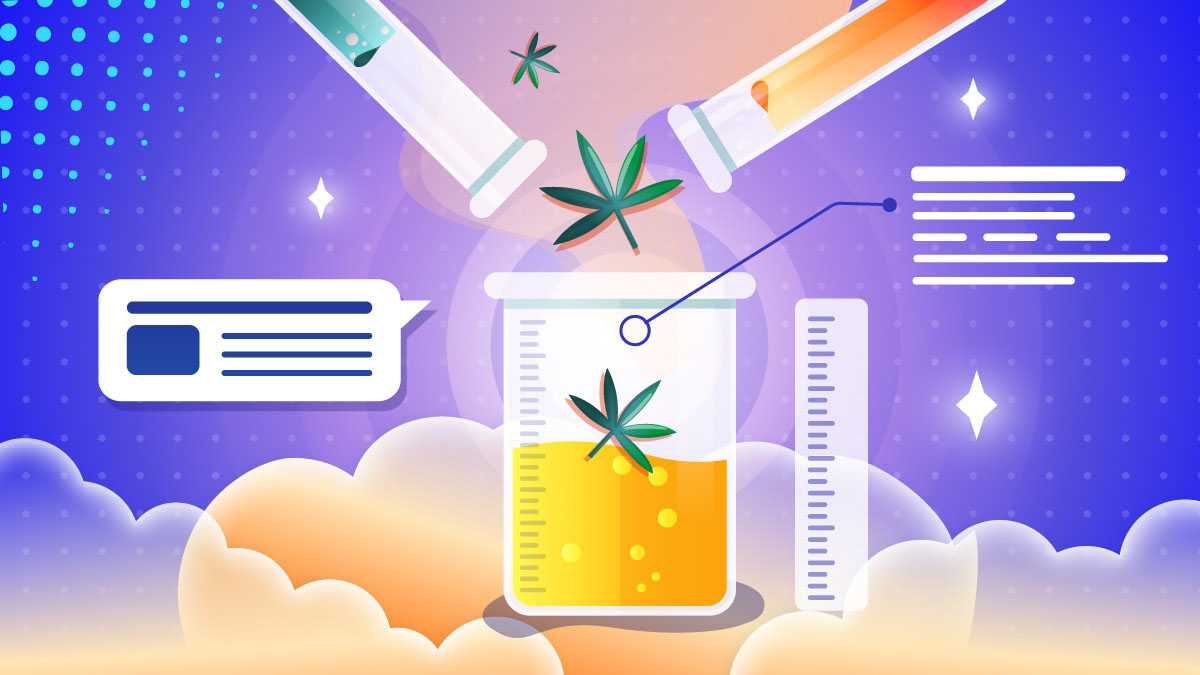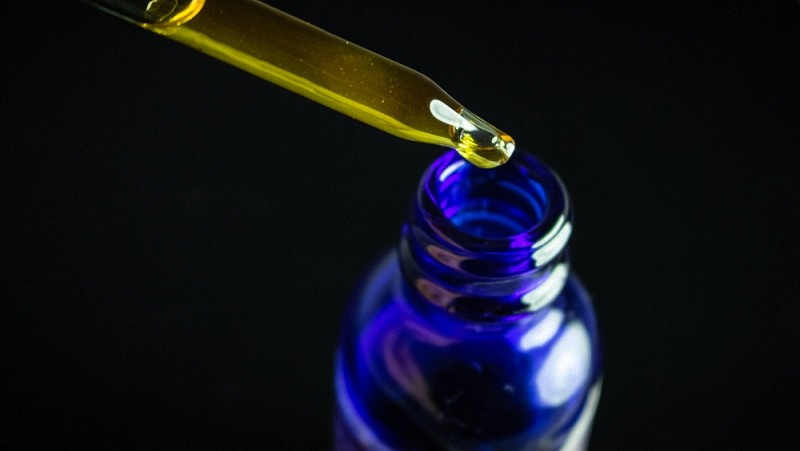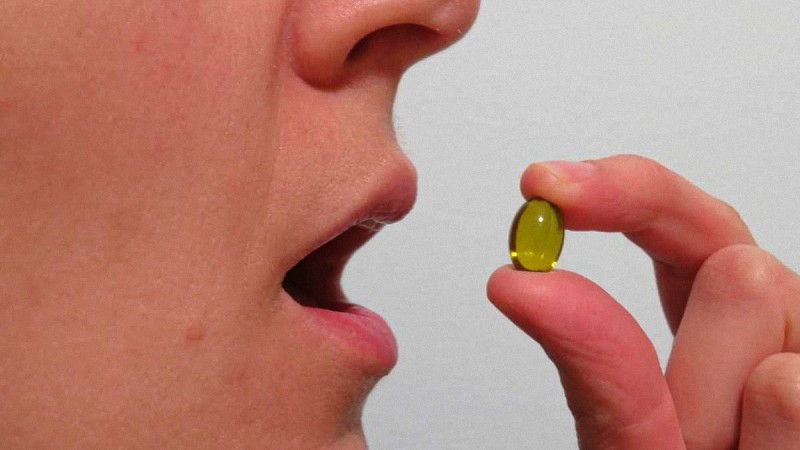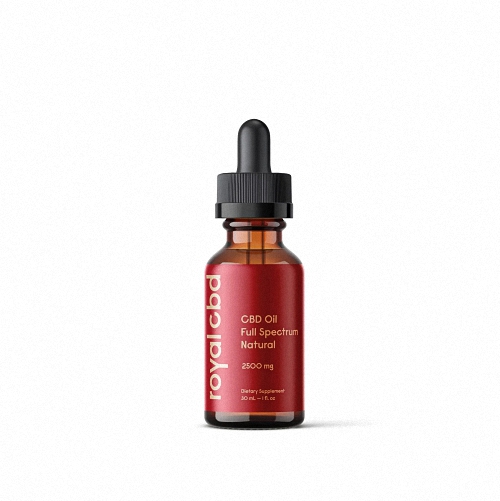CBD Dosage: How Much to Take for Pain, Anxiety & Sleep

So you’ve bought yourself some CBD, but one question remains unanswered — How much CBD oil should I take?
Is one dropper daily enough to manage symptoms?
What’s the best CBD dosage for specific conditions?
This article is going to blow the doors wide-open on dosing CBD.
You’ll understand the ins and outs of dosing cannabidiol, learn how to properly measure your CBD dose with different products, and learn the important differences between dosing CBD oil for different types of symptoms.
CBD Dosage: How Much CBD Oil Should I Take?
A one-size-fits-all dosage for CBD doesn’t exist. Even the FDA doesn’t provide a Recommended Daily Intake (RDI) for CBD.
In simple terms, CBD doesn’t have an official serving size.
CBD acts on 60 different molecular pathways, meaning it has a very complex relationship with the body and the brain. It’s difficult to come up with a definite dosage guideline that would help any person regardless of individual physiology.
Some CBD manufacturers give you their own dosage recommendations, but they do so to provide new users with a general point of reference. It’s impossible to tell if a specific dosage is the right amount for a given person because it doesn’t address a few critical variables — which I’m going to discuss below.
Important Considerations For Dosing CBD
Finding an effective CBD dosage may depend on the following factors:
- The potency of the product
- The bioavailability of the chosen product
- Your unique biochemistry
- Prior experience with CBD
- Your weight
- Your metabolism
- The severity of your condition
- Other medications you’re currently taking
Nick Jikomes, an esteemed neuroscientist, says:
“As our body undergoes physiological changes, so do cannabinoid receptors in the endocannabinoid system, which are directly linked to the effects produced by CBD.”
This means that your “best CBD dosage” can change throughout your life, so there will never be a universal or static amount that works for you.
| TOP-RATED PRODUCTS | DETAILS | |
|---|---|---|
|
Best Overall CBD Oil
|
Royal CBD – Full Spectrum CBD Oil
|
Click for Best Price |
|
Best Organic Formula
|
Gold Bee – Organic CBD Oil
|
Click for Best Price |
How to Calculate the Best CBD Dosage for Your Needs

There are steps you can take to find your ideal CBD dosage for your health goals. Let’s go over the process step by step.
1. Decide What Form of CBD to Use
Currently, the most common way to deliver CBD to your system is through CBD oil drops. They’re relatively easy to use and allow you to absorb CBD directly into the bloodstream as opposed to capsules and edibles.
However, pure CBD oil has a distinct earthy taste. Some find this flavor too harsh and somewhat bitter. If you don’t like the taste of CBD oils, something like a capsule, gummy, or vape oil may be a better option.
The above routes of administration are typically preferred by people who need fast relief from anxiety, stress, pain, or inflammation.
Other popular methods include CBD edibles, capsules, and topicals. Topicals are the better option if the area you’re trying to treat is on the skin, joints, or muscles.
Remember when I mentioned the importance of the chosen consumption method on your dosage regimen?
Here’s why it matters.
2. Check the Bioavailability of Your Product
Bioavailability refers to the percentage of ingested CBD that your body absorbs into the bloodstream.
Below you’ll find the bioavailability of 4 different delivery methods:
- CBD topicals: <1%
- CBD capsules and edibles: 5-15%
- CBD Oil drops: 20-30%
- CBD vapes: ~56%
For example, if you consume 15 mg of CBD in oral drops, you’re going to end up with 4–6 times the amount of CBD in your body than you would with a capsule containing the same concentration.
The bioavailability of CBD topicals is measured at 0% because none of the CBD applied to the skin makes it to the bloodstream. Instead, CBD reaches the cannabinoid receptors in the skin and muscles.
3. Talk to a Physician
Before taking any CBD product, I advise you to consult with a physician. This is the best way to make sure the CBD or other supplements you’re taking won’t interfere with any medications you may be taking. It’s also the best way to rule out any major causes for your symptoms before starting supplementation.
4. Start With a Lower Dose than You Think You Need
Everybody has a different history with the use of certain substances, supplements, and medications. And since we’re all made differently, what works wonders for you, might not work for everyone — and vice versa.
The best way to determine your initial CBD dosage is to count it by your body weight. Experts recommend starting with 1–6 mg of CBD per pound. Low doses allow the user to monitor their body’s reaction more effectively.
This brings us to our last tip.
5. Gradually Increase the Dosage Until You Notice the Difference
Increasing the amount of CBD oil gradually is the best way to figure out the best CBD dosage.
I recommend lower CBD doses at first because if the dose is too high, it may trigger some unwanted effects, such as sleepiness, lowered blood pressure, lightheadedness, or diarrhea. Side-effects are a cue to dial your dose back to the last one that didn’t produce these effects.
On the other hand, if you continue to use a dosage that’s too low, you may not feel anything at all, so again — observation is key. Listen to your body, you’ll soon get a feel for how CBD works for you.
How to Measure Your CBD Oil Dosage
CBD oil drops come in dropper bottles. They’re easy to use and allow you to precisely measure out your serving of CBD.
All you need to do is squeeze the dropper so it draws the oil from the bottle, apply a few drops under the tongue, and hold it there for about 60 seconds. This way, CBD will absorb into the bloodstream through sublingual membranes under the tongue.
But how do you estimate your CBD oil dosage?
To answer this, you’ll need to know how much CBD a dropper holds. Typically, a dropper can carry 1 ml of liquid. If you know the total volume of your oil drops, you can do the math and calculate your CBD dosage using a simple formula.
[Total CBD in the bottle] ÷ [Number of milliliters in the bottle] = mg of CBD in a dropper.
For example, let’s say you have a 30 ml CBD oil that has 750 mg of CBD:
750 ÷ 30 = 25 mg of CBD per ml (per dropper)
How to Measure Your CBD Vape Oil Dosage
With CBD E-liquids, you’ll need to know how much CBD is in the product. As you vape your E-liquid throughout the day, watch the tank and see how long it will work without refilling.
Dosing vape oil is better using qualitative means. The effects appear much faster than from tinctures or edibles, so you can take little puffs at a time and wait about 5 minutes between another dose to see how it’s affecting you.
Once you start feeling the effects you’re looking for, this is your dose.
If you experience side effects, it means the dose is too high, so the next time you vape, useless.
Recommended CBD Dosage for Pain, Anxiety & Sleep

As mentioned, there are some general dosage guidelines for CBD that you can use for certain conditions. After studying CBD for several decades, scientists have finally created some kind of a framework for CBD dosage. This creates a relatively good point of reference for determining the effective amount of cannabidiol.
CBD Dosage for Anxiety
Most studies have investigated the use of CBD to treat social anxiety. One of the first studies, which was replicated many times since the initial publication, points to a dosage of 40 mg of sublingual CBD as an effective treatment for social anxiety. However, specific cases of anxiety disorders may call for an increase of up to 300 mg of CBD.
CBD Dosage for Different Levels of Pain
The optimal CBD dosage for people with chronic pain ranges between 2.5–20 mg of CBD when administered orally, alongside or without THC. Certain individuals may require higher doses, especially those with a greater body mass.
CBD Dosage to Improve Sleep Quality
CBD is known for its ability to reduce stress and anxiety and mitigate both pain and inflammation.
These factors are important when it comes to maintaining proper sleep quality, but there’s also one more benefit you should be aware of. At higher doses, CBD may induce sleepiness, allowing the user to fall asleep faster without experiencing the stream of racing thoughts.
Depending on the frequency and severity of your symptoms, you may need between 25–175 mg of CBD daily to combat them.
CBD Dosage: FAQ
1. Is CBD Safe?
Yes, CBD is generally considered safe for human consumption, with no signs of toxicity at doses as high as 1,500 mg daily.
2. Can CBD Get You High?
No, CBD doesn’t act on the cannabinoid receptors in the brain as THC does. Therefore, this cannabinoid is non-intoxicating — it can’t get you high.
3. Can You Overdose on CBD?
Overdosing on cannabinoids is impossible because cannabinoids don’t affect the brain stem are responsible for respiration.
4. Does CBD Oil Have Any Side Effects?
CBD has a relatively short list of side effects, most of which are considered minor. However, in high doses, CBD can produce an array of unwanted reactions, such as:
- Dry mouth
- Dizziness
- Lowered blood pressure and heart rate
- Sedation
It’s a small price to pay compared to the list of side effects caused by prescription medications.
5. What’s the Best Way to Consume CBD?
If by “the best” you mean the most efficient, then oil tinctures or vaping products will be your best options. That’s because they offer higher bioavailability than capsules and edibles.
6. Should I Take Full-Spectrum CBD or Isolate?
If you’re not subject to periodical drug tests at work, I would recommend a full-spectrum product because of something called the “entourage effect.” This term describes the synergy between all active ingredients in cannabis, including cannabinoids other than CBD and THC, terpenes, and other plant compounds. They’re believed to require less CBD than pure isolate to produce similar effects.
7. Can I Give CBD to My Dog or Cat?
Hemp-derived CBD products are safe for pets because they contain little to no THC, the intoxicating compound that produces toxicity in animals. Pets can benefit from CBD in similarly to humans.
Final Thoughts: What’s Your Optimal CBD Dosage?
The ideal CBD dosage that would work for everyone doesn’t exist. The nature of cannabidiol is very complex — so is the cannabis plant — and there are too many outside variables that can influence CBD’s absorption.
The potency of your product, its bioavailability, your weight, the severity of the condition, cannabinoid spectrum — they all matter.
You can use some general dosage guidelines for specific conditions, but always make sure you treat it as a point of reference, not the one and the only way to dose CBD.
So, what’s the best way to figure out the ideal CBD dosage?
Start low and gradually go up with the dosage until you experience the desired effects. The way you react to CBD can change over time, so you need to monitor the effects throughout your supplementation.
You should also ask a physician who’s experienced in using CBD or hemp extracts with patients to get professional guidance.
What CBD dosage is best for you? How much do you take daily? Let me know in the comments below!

